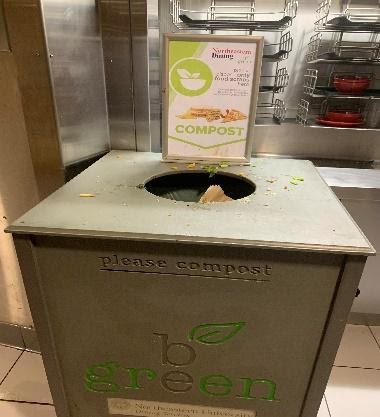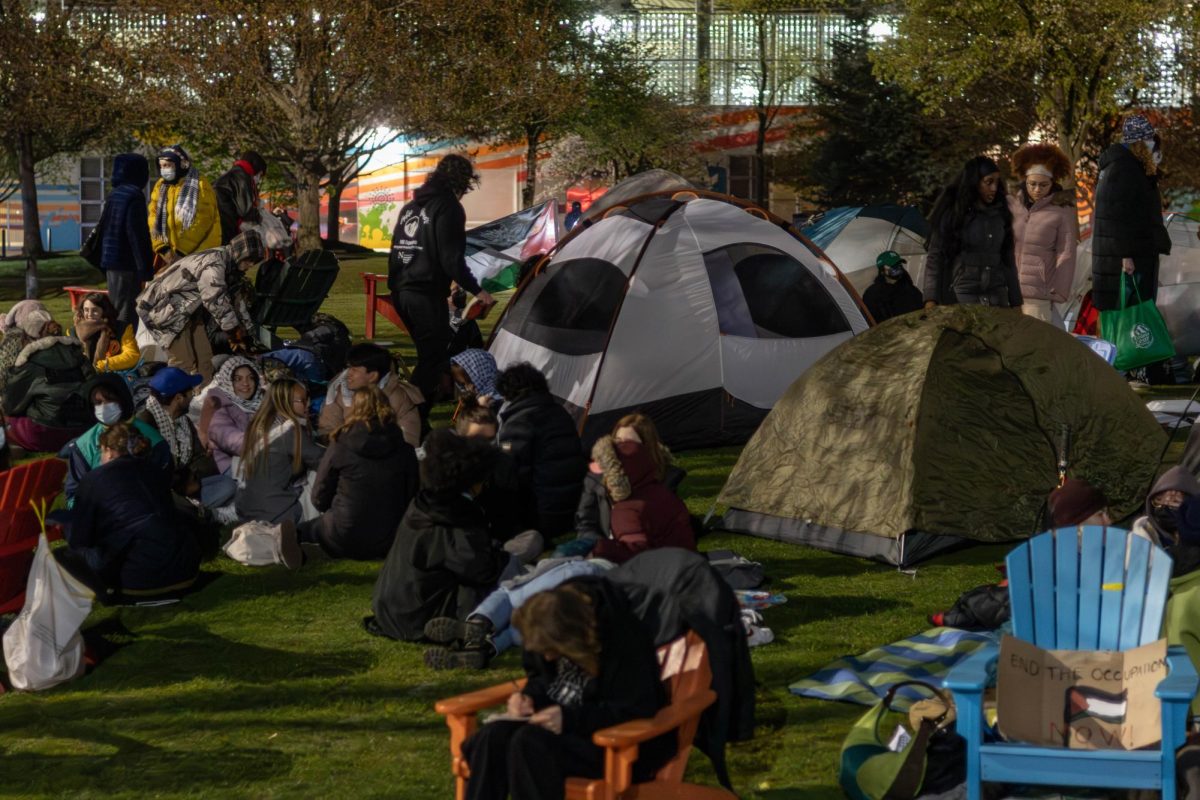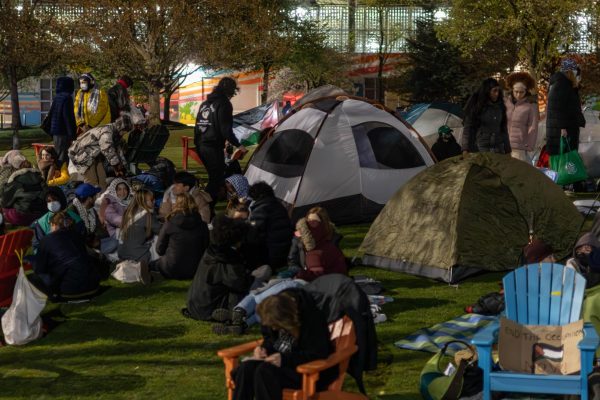Op-ed: Students must do their part to reduce food waste

There must be action taken by students at Northeastern to reduce excessive food waste.
February 10, 2022
Time with family and friends can often be centered around food. People tend to stuff themselves at family dinners and restaurants. With large dinners, there is always a surplus of entrees and sides, especially when restaurant portions can be huge. This, of course, leads to many leftovers that often end up in the trash.
It is always important to remember that the food waste in the United States is continually increasing. According to Dana Gunders, a food and agriculture project scientist for the Natural Resources Defense Council in San Francisco, every American wastes double the amount of food than what people wasted 50 years ago. Many people in the United States do not know where their next meal is coming from, yet, according to Gunders, almost half of the food in the United States is thrown away. Wasting food is a problem in and of itself, but all this food in landfills adds to the issue of global warming, since the decaying food produces methane. The release of this greenhouse gas continues to thicken the ozone layer.
Perfectly edible food is often thrown away due to cosmetic standards. People pick out produce based on how it looks to buy the “best” food. Most of these foods, however, taste the same and are fit for human consumption no matter how they look, so there is no reason for this food to be wasted. Since so much food is wasted throughout the United States, it prompted me to look at Northeastern and the food waste in the dining halls.
At Northeastern, it might be assumed that multiple large dining halls would be wasting large amounts of food every day, but that is simply not the case.
Northeastern has made a large effort to limit food waste in the dining halls, and students should do whatever they can to contribute to this effort. In an interview, in November, with Tom Barton, the campus executive chef, I learned that the dining halls have implemented ways to create essentially zero food waste. Food is made in small batches and planned out for the day to limit the leftover food that students do not end up eating. The dining staff uses data collected over the years of how many students swipe into the dining hall a day, and at what times to better plan their production.
Food is also repurposed. For example, carrot tops and leftover herbs may be used to make a pesto for another meal, or leftover chicken from one dish may be repurposed and made into a soup, according to Barton. Lastly, there are large composting bins in each dining hall. Students throw any leftover food into these bins to be composted.
These are just some of the ways Northeastern has attempted to limit its food waste. Other large schools that serve thousands of kids every day, such as the University of Massachusetts Amherst, or UMass Amherst, have also found ways to limit their food waste. According to Garett DiStefano, the director of residential dining at UMass Amherst, the university reduced its food waste by 30% just by getting rid of food trays in the dining halls. These same improvements were made at Northeastern, where food trays in dining halls were replaced with smaller plates and bowls. Seeing that these universities have made efforts to limit their food waste and help the planet shows how simple it can be to make changes to help solve this problem.
However, there is still more progress to be made, and it starts with the students. Whether you go to the dining hall, cook your own food or get takeout, it is important to take only what you are going to eat instead of wasting or throwing away leftovers.
Some students may not be thinking about wasting food, since they are more concerned about making the most of their meal swipe. Yes, the meal plans are expensive — the default meal plan at Northeastern is $3,955 per semester, however taking copious amounts of food is not necessary to make the most of your meal swipe.You are always able to go back and get more food if you are still hungry.
Northeastern dining halls are doing their part to help reduce food waste, which is a great place to start. Now, students need to help as well. They need to remember to only take one plate at first, rather than taking more than they will eat. Reducing waste is not only good for the planet, but also those who inhabit it. If people waste less food, they do not have to spend as much money buying it. This, in turn, benefits the planet, as less food is being dumped in landfills, which contributes to greenhouse gasses. Reducing food waste is not hard and everyone can be more conscious of this problem in their everyday life — including Northeastern students.
Alexandra Burnham is a first-year health sciences major. She can be reached at [email protected].

















